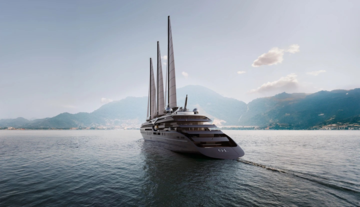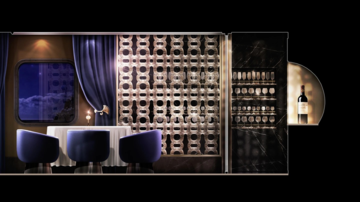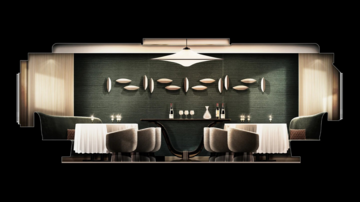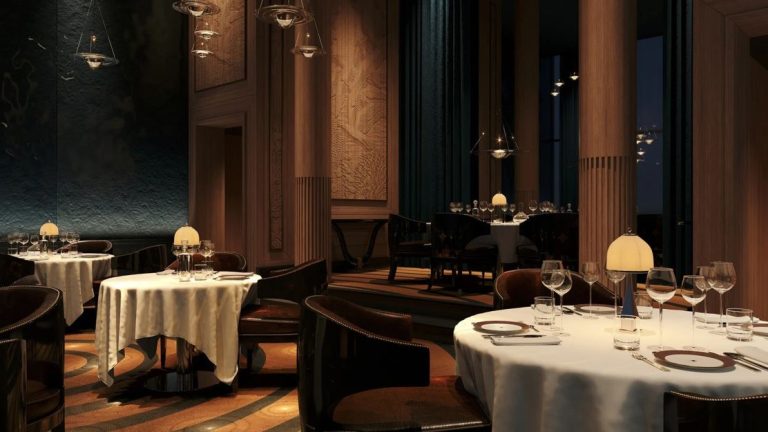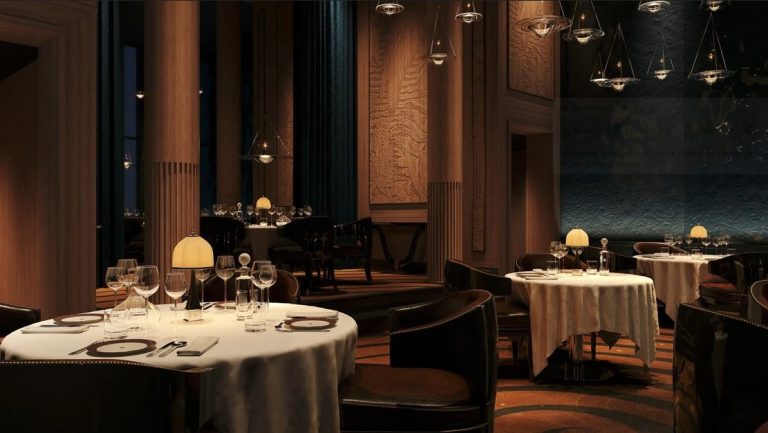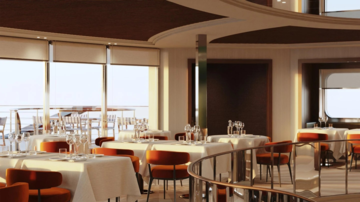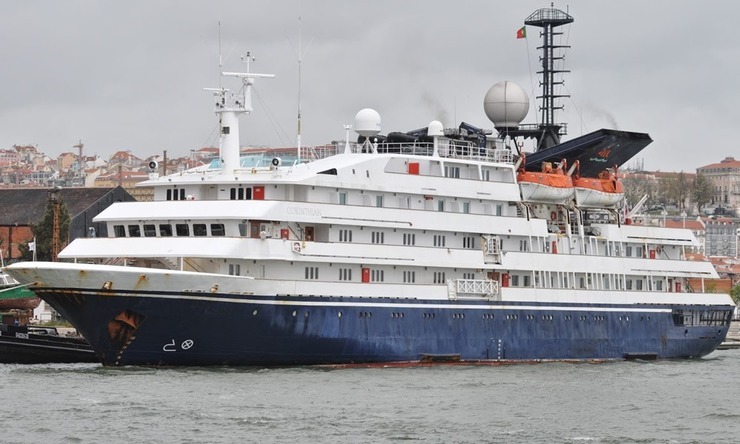Orient Express: Fine Dining with Chef Alléno
Aboard the Orient Express Corinthian, the very concept of travel finds a new expression. The renowned Orient Express brand, a symbol of elegance and adventure since 1883, extends its horizon to the sea, ushering in a new era of itinerant luxury with the launch of their grand sailing vessel.
140 years after the first exceptional train, a vessel is born that is both a tribute to the past and a projection into the future. Corinthian, in fact, is not merely a ship: it is a floating palace, a masterpiece of naval architecture that blends aesthetics, technology, and comfort into a project destined to redefine the standards of elite tourism.
The onboard philosophy is reflected from the outset in the limited number of suites: just fifty-four, all featuring panoramic sea views and designed to ensure intimacy, silence, and personalized attention. The service onboard recalls that of the legendary historic Orient Express trains, with carefully selected and trained staff ready to interpret each guest’s needs.
Orient Express Corinthian
Every element, from the materials chosen to the shapes of the furnishings, down to the layout of the common areas, is designed to enhance the landscape and foster an emotional connection with the surrounding environment. The windows are conceived as moving theatrical backdrops, capable of framing the sea in its every variation, conveying the sensation of being constantly at the center of a moving painting.
The visual and tactile identity of the Corinthian is deeply linked to French artisanal excellence. The interiors combine the elegance of classical tradition with contemporary solutions, offering understated yet sophisticated environments, where beauty is never flaunted but subtly suggested.
In this exclusive context, the gastronomic offering plays a central role. Leading this culinary vision is Yannick Alléno, one of the most awarded French chefs in the world, with seventeen Michelin stars to his name. His presence onboard is not merely an added value, but a true declaration of intent.
The goal is not only to offer excellent dishes, but to build, through food, a narrative consistent with the essence of the journey. Each creation is designed to converse with the movement, the landscapes traversed, and the local products discovered along the route.
Le Cellier
L’Ecrin
According to chef Alléno himself, the Orient Express represents the noblest essence of travel, and being able to bring his innovative culinary vision to such an iconic and historically rich place is, for him, a true honor.
The entire gastronomic experience unfolds across five restaurants, each with its own concept, but all under a unified direction. The idea is not to create a repetitive or conventional offering, but to craft a culinary narrative that adapts to the pace of navigation, the light, the mood of the day.
The menu evolves with the journey, and every dish results from a process that considers seasonality, the availability of ingredients at the ports of call, and the need to harmonize technique with simplicity.
Among the symbolic locations of this offering stands out La Table de l’Orient Express, the flagship restaurant onboard. The setting is intimate, elegant, designed for a small number of guests, and offers an open view of the horizon.
La Table de l’Orient-Express by Yannick Alleno (1)
La Table de l’Orient-Express by Yannick Alleno (1)
There are no frills or excessive formalities: the experience focuses on essence, on the pure quality of hospitality and cuisine. The dishes proposed are the result of constant research, where high-level culinary technique serves a narrative that avoids self-celebration and aims instead to move with restraint.
The key concept is that of “Terroir in motion”: an idea that overturns the traditional logic of French cuisine — typically tied to a specific territory — and transforms it into a dynamic journey, where the territory changes with the voyage and constantly imposes new challenges.
Working on the open sea means managing the unexpected, adapting quickly, and turning limitations into opportunities. Alléno personally selected the onboard team, instilling an approach focused on flexibility, deep understanding of ingredients, and the ability to interpret them with respect.
Not only refinement, then, but also rigor and concreteness. Every dish tells the story of a port, a season, a landscape. Each meal is designed to accompany a moment of the day: from breakfast served as the sun rises behind the sails, to lunch enjoyed as the ship docks at a new destination, to dinner that closes the day with the slow rhythm of the waves. The cuisine becomes the thread of a narrative made of discoveries, reflections, silent dialogues between the guest and the sea.
The Corinthian thus presents itself as a symbol of a new era of maritime luxury. Not only for the quality of services and the excellence of the experiences offered, but also for the now rare idea that travel can still be an act of wonder.
La Terrasse
Far from the logic of mass tourism, this sailing vessel celebrates the value of waiting, of depth, of authenticity. Every detail, from the shape of the ship to the day’s menu, contributes to building a suspended dimension, where time stretches and perceptions are amplified. Through the meeting of cultural heritage and innovation, of French elegance and openness to the world, the Corinthian embodies a form of hospitality that favors quiet beauty, measured comfort, and shared knowledge.
In this scenario, Yannick Alléno’s culinary offering is not just a high-level sensory experience, but a key to understanding the entire journey. A way to interpret the sea not as a barrier, but as a fertile space for connections. Orient Express Sailing Yachts has not merely built a ship. It has created a place where travel regains deep meaning, where the pleasure of sailing combines with the intelligence of taste, and where the experience becomes, once again, memory.
Don’t miss further updates and news about the Orient Express company on our Cruising Journal website.

